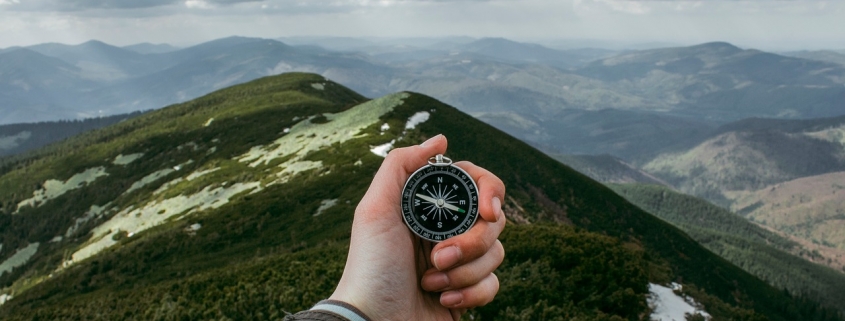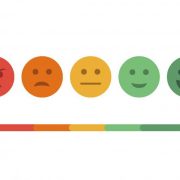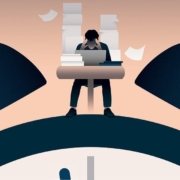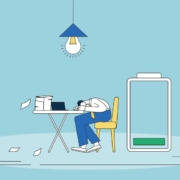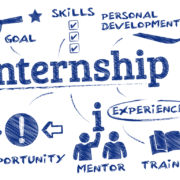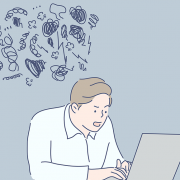How to Handle Major Change In Your Life
Many of us believe that unexpected events or shocks create fertile conditions for major life and career changes by sparking us to reflect about our desires and priorities. That holds true for the coronavirus pandemic. A bit over a year ago, in an online poll numerous people were asked how the pandemic had affected their plans for career change, 49% chose this response: “It has given me downtime to rest and/or think.” That’s a good start. But if you’re thinking about a (successful) career change, it’s that thinking on its own is far from enough. Yes, events that disrupt our habitual routines have the potential to catalyse real change. They give us a chance to experiment with new activities and to create and renew connections. Even in the seemingly “unproductive” time we spend away from our everyday work lives, we conduct important inner business — asking the big existential questions, remembering what makes us happy, shoring up the strength to make difficult choices, consolidating our sense of self, and more.
Yes, events that disrupt our habitual routines have the potential to catalyse real change. They give us a chance to experiment with new activities and to create and renew connections. Even in the seemingly “unproductive” time we spend away from our everyday work lives, we conduct important inner business — asking the big existential questions, remembering what makes us happy, shoring up the strength to make difficult choices, consolidating our sense of self, and more.
Enough has happened during this past year to make many of us keenly aware of what we no longer want. But the problem is this: More appealing, feasible alternatives have yet to materialise. Basically, we’re stuck in limbo between old and new. And now, with most Covid restrictions at last falling away and a return to the office imminent (in some capacity anyway), we confront a real danger: getting sucked back into our former jobs and ways of working.
How can those of us who want to make a career transition avoid that? How can we make progress toward our goals by building on what we’ve learned this past year? Research on the transformative potential of a catalysing event like the coronavirus pandemic suggests that we are more likely to make lasting change when we actively engage in a three-part cycle of transition — one that gets us to focus on separation, liminality, and reintegration. Let’s consider each of those parts of the cycle in detail.
Separation Benefits
Research on how moving can facilitate behaviour change suggests that people who found a new and different place to live during the pandemic may now have better chances of making life changes that stick. Why? Because of what’s known as “habit discontinuity.” We are all more malleable when separated from the people and places that trigger old habits and old selves.
Change always starts with separation. Even in some of the ultimate forms of identity change — brainwashing, de-indoctrinating terrorists, or rehabilitating substance abusers — the standard operating practice is to separate subjects from everybody who knew them previously, and to deprive them of a grounding in their old identities. This separation dynamic explains why young adults change when they go away to college.
Recent research has shown how much our work networks are prone to the “narcissistic and lazy” bias. The idea is this: We are drawn spontaneously to, and maintain contact with, people who are similar to us (we’re narcissistic), and we get to know and like people whose proximity makes it easy for use to get to know and like them (we’re lazy). The pandemic disrupted at least physical proximity for most of us. But that might not be enough — particularly as we rush back into our offices, travel schedules and social lives — to mitigate the powerful similarities that the narcissistic and lazy bias create for us at work. That’s why maintaining some degree of separation from the network of relationships that defined our former professional lives can be vital to our reinvention.
Liminal Interludes & What You Can Learn
Taking advantage of liminal interludes allows us to experiment — to do new and different things with new and different people. In turn, that affords us rare opportunities to learn about ourselves and to cultivate new knowledge, skills, resources and relationships. But these interludes don’t last forever. At some point, we have to cull learning from our experiments and use it to take some informed next steps in our plans for career change. What is worth pursuing further? What new interest has cropped up that’s worth a look? What will you drop having learned that it’s not so appealing after all? What do you keep, but only as a hobby?
Reintegration: New Beginnings On The Horizon
Most executives and professionals who have shared their pandemic experiences have said that they do not want to return to hectic travel schedules or long hours that sacrifice time with their families — but are nonetheless worried that they will.
They are right to be worried, because external shocks rarely produce lasting change. The more typical pattern after we receive some kind of wake-up call is simply to revert back to form once things return to “normal.” That’s what the Wharton professor Alexandra Michel found in 2016, when she investigated the physical consequences of overwork for four cohorts of investment bankers over a 12-year period.For these people, avoiding unsustainable work habits required more than changing jobs or even occupations. Many of them had physical breakdowns even after moving into organisations that were supposedly less work-intensive. Why? Because they had actually moved into similarly demanding positions, but without taking sufficient time in between roles to convalesce and gain psychological distance from their hard-driving selves.
Our ability to take advantage of habit discontinuity depends on what we do in the narrow window of opportunity that opens up after routine-busting changes. One study has found, for example, that the window of opportunity for engaging in more environmentally sustainable behaviours lasts up to three months after people move house. Similarly, research on the “fresh start” effect shows that while people experience heightened goal-oriented motivation upon after returning to work from a holiday, this motivation peaks on the first day back and declines rapidly thereafter.
The hybrid working environments with which many organizations are currently experimenting represent a possible new window of opportunity for many people hoping to make a career change, one in which the absence of old cues and the need to make conscious choices provides an opportunity to implement new goals and intentions. If you’re one of these people, it’s now up to you to decide whether you will use this period to effect real career change — or whether, instead, you’ll drift back into your old job and patterns as if nothing ever happened.
Given our current situation knowing that your colleagues or employees are best suited for this new scenario we find ourselves in. Finding the right talent, the best fit for the job and your organisation can be a very challenging task. It is now important to find out whether your managers or your team is well-equipped of working together from various locations. It requires deep knowledge of their personalities, strengths, weaknesses, interests, work style and other characteristics. Our technology and solutions will do the work for you, helping you discover if your people are resilient during times of hardship, if they are autonomous, if they are team players, without actual human contact. Given that our platform is cloud-based, everyone can use it from home as well. Humanity finds itself at a crossroad for various reasons now, why not help people discover and develop themselves from the comfort of their own homes?
Request a free demo:

Sources:
https://www.huffingtonpost.ca/cheryl-muir/3-ways-to-prepare-yoursel_b_7295334.html
https://possibilitychange.com/major-life-decision/
https://www.flashpack.com/wellness/life-change-how-to-happiness/


